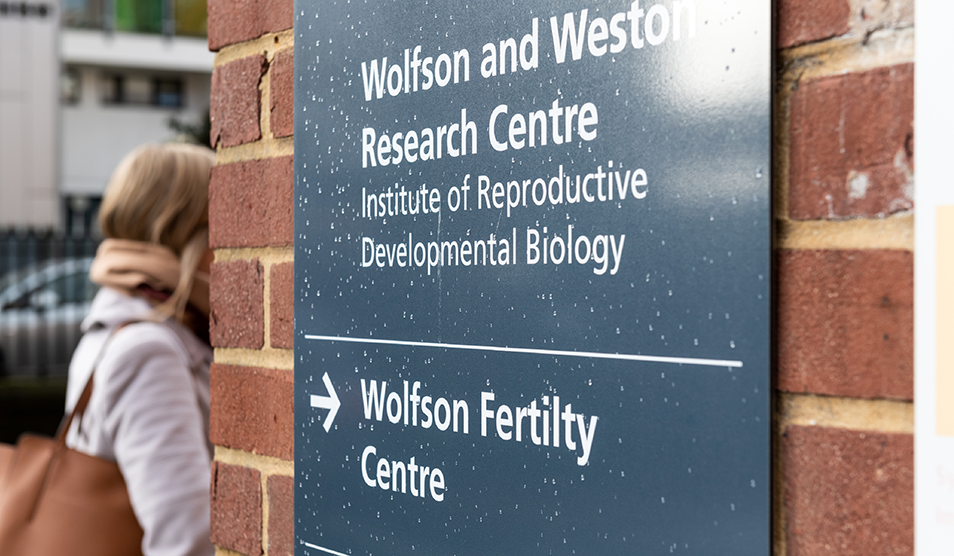New research centre at Imperial will investigate the causes of premature birth
A new research centre at Imperial will investigate the causes of premature birth.
The centre will be the first of its kind in Europe, and will investigate how to reduce the risk of premature birth. Prematurity is the single biggest cause of death of babies under five anywhere in the word.
Led by Phil Bennett, professor of obstetrics and gynaecology at Imperial’s Institute of Reproductive and Developmental Biology, the centre will be funded by US charity the March of Dimes, and called the March of Dimes Prematurity Research centre.
The opening event was attended by families affected by premature birth. One such family were Sidra Shah, her husband Zeghum Shah and their three-month old daughter Qudsia Batool.
Sidra and Zeghum lost their first child at 18 weeks, and their second three years later at 22 weeks. Their three-month old daughter was born prematurely.
She said: “Our journey started seven years ago when we got married. Very quickly, I fell pregnant, and as it was the first child for me, everyone was really excited. It was a normal pregnancy; I didn’t even have nausea, so we were very happy that everything was going well. But then all of a sudden, at around 18 weeks, I started bleeding. We went to the hospital and were told I was miscarrying at 18 weeks. There was no answer to why it was happening, it was extremely traumatic. Giving birth then coming home empty handed without our child was a very difficult thing to go through.
It took us three years to become pregnant again. This pregnancy was very very precious, because we had been trying for a long time, but unfortunately again I miscarried."
"Without this, I would probably never have had a child"
"In 2017, I was referred to Professor Bennett. He said a weakness in the cervix may have been causing the miscarriages, and decided to do a type of procedure, called a transvaginal stitch, that helps strengthen the cervix. I fell pregnant very quickly after this – it was a sudden but a very good surprise.
I used to see Professor Bennett in his clinic every week and he used to scan me to monitor my cervix. Also, he provided a lot of help with my mental health – he referred me to a physiotherapist, a psychiatrist and he also referred me to a midwife. Being able to see the same person at all times helped me a lot.
At 36 weeks I started labour pain and came to Queen Charlotte’s, and gave birth to our daughter. We didn’t know the gender, so that was an amazing, amazing surprise. We always wanted a girl, because we had never recovered from the last miscarriage, and were overjoyed when she arrived.
The research centre is so needed – and will help avoid heartbreak for other families.
I also hope the creation of the research centre will help increase awareness of premature birth, and make it less of a taboo. When I was going through all of this, I felt so lonely. I openly talk about it now, because I find it very healing. And I’ve noticed when I talk about it openly, sometimes other people do open up.
I’m so thankful to Professor Bennett and the whole NHS system. Without this, I would probably never have had a child."
The first European prematurity research centre
Speaking at the launch, Stacey D. Stewart, March of Dimes president, said: “What this is about is making sure that we can have more moms who can have successful pregnancies, who have babies who are just as healthy as they can be and that are born full term.
We still don’t yet understand why that happens sometimes, that moms may not have successful pregnancies and may not have babies born full term. Our main objective is to figure out why that’s happening and to figure out what we can do to prevent as much of that from happening as possible.
The moms and the babies that are here today remind us that that’s why we’re here, to make sure that we can have healthier moms and healthier babies.”
Professor Bennett added: “We’re really really happy to be hosting the first European prematurity research centre. Prematurity is now the single biggest cause of death of babies under the age of five anywhere in the world.
“It is very important to say that we could not do the work that we do without the patients that we look after.”
Watch this video to learn more about the March of Dimes Prematurity Research centre.



